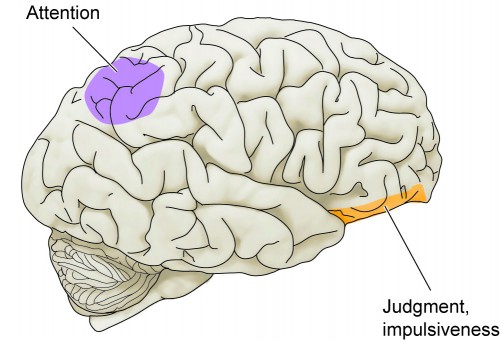In addition to the overt physical effects manifested in FAS children, the effects of alcohol on the developing fetus can produce a host of other symptoms postnatally, notably neuropsychological or behavioral dysfunction and learning disabilities (see Chapter 3).
Not all children exposed to alcohol in utero exhibit all of these symptoms, but the most common ones are listed below.
Most children diagnosed with FAS exhibit some combination of these neuropsychological and behavioral problems. However, many children who are exposed in utero to alcohol do not exhibit the overt physical abnormalities of FAS. Often, these children are mislabeled with disorders such as Attention Deficit Disorder (ADD) because of some of the similarities in their behavioral dysfunction (for a comparison between ADD and FASD, see Chapter 5). However, many children with FASD also have ADD/ADHD.
Neuropsychological and behavioral problems include:
- Low-average IQs (IQ can range from mental retardation to normal)
- Poor executive functioning
- Lack of social and communication skills

- Lack of appropriate initiative
- Poor judgment
- Failure to consider consequences of actions
- Poor concentration and attention
- Social withdrawal
- Intermittent anxiety
- Stubbornness
There is considerable evidence to demonstrate that mothers who drink during pregnancy can give birth to children who do not have the physical characteristics (or even low IQ) associated with FAS, yet still exhibit the same neuropsychological and behavioral problems. These children also suffer the same degree of disabilities later in life as do FAS adults.